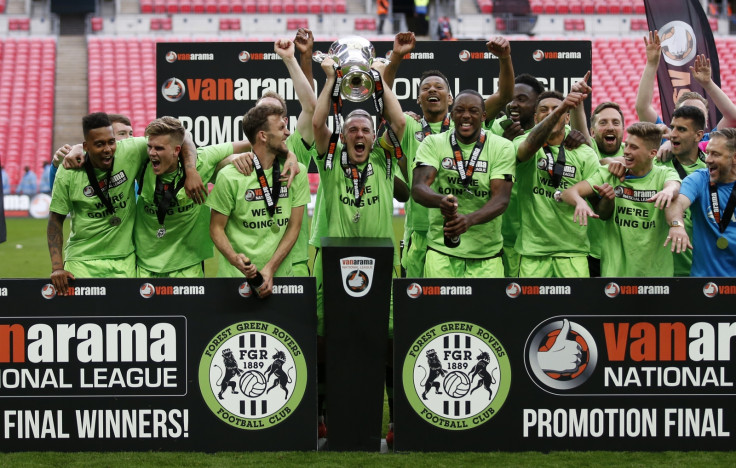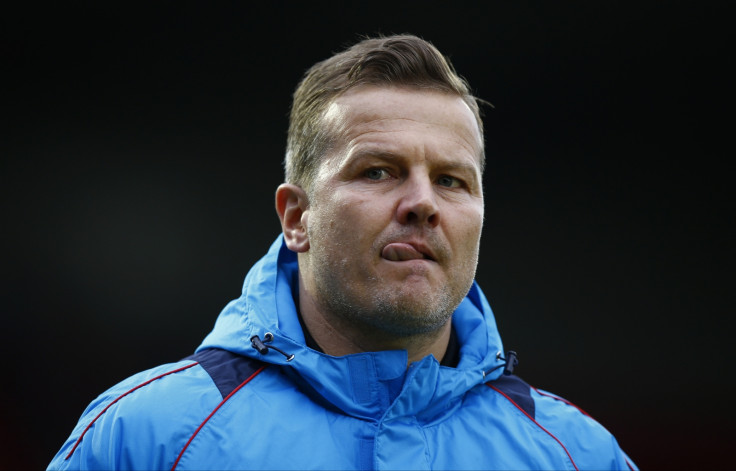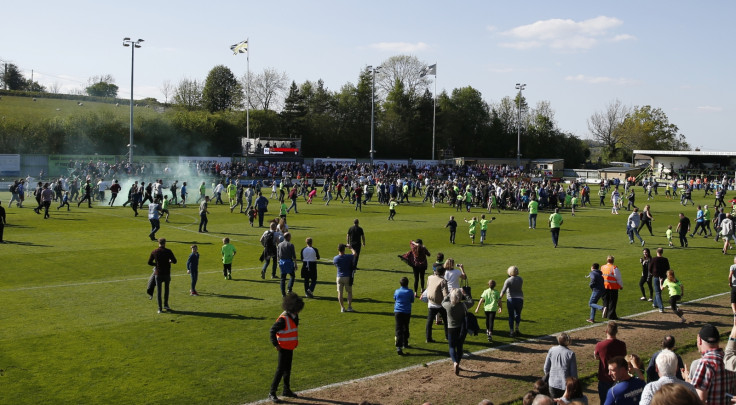How vegan football team Forest Green Rovers made it to the big time
FGR are owned by former New Age traveller Dale Vince.

Forest Green Rovers made it third time lucky in the play-offs on Sunday (15 May), when the National League's longest-serving club finally secured promotion to the Football League for the first time in their 128-year history, courtesy of a 3-1 victory over favourites Tranmere Rovers.
Wigan Athletic loanee Kaiyne Woolery scored a brace, while top scorer Christian Doidge notched during a breathless first half to re-establish their advantage following an equaliser from Connor Jennings.
With escape from the fifth tier finally secured following nearly two decades – and one previous Wembley heartbreak – IBTimes UK profiles a club that do things a little differently to the rest of the members of the English football pyramid...
Where do Forest Green Rovers play?
Nicknamed "The Little Club On The Hill", Rovers, founded in 1889, play their home matches in the Gloucestershire town of Nailsworth. Their home since 2006, The New Lawn, has a capacity of just 5,147 and boasts only 2,000 seats.
Who is the owner of Forest Green Rovers?
Local businessman Dale Vince, a millionaire green energy tycoon, became the majority shareholder of Forest Green back in 2010. He quickly replaced former Stroud MP David Drew as chairman. The 55-year-old is the founder of Ecotricity, a company who aim to "change the way electricity is made and used in Britain".
At the time of the former New Age traveller's arrival, FGR had only been saved from relegation to the sixth-tier thanks to financially-stricken Salisbury City's failure to overturn a two-division demotion.
Who is the manager of Forest Green Rovers?
Eyebrows were raised when Forest Green parted company with Ady Pennock just one week before the play-offs in order to give them a better chance of success following a seven-match winless run.

Caretaker manager Scott Bartlett remained in charge for a two-legged defeat of Dover Athletic and a 3-1 final loss to Grimsby Town before former Swindon Town boss Cooper – who had served as captain during a one-year stint in the Cotswolds back in 2001-02 – took charge following his departure from Notts County.
Under their former skipper, Forest Green, unable to keep pace with county rivals Cheltenham Town a year earlier, produced a 3-1 aggregate semi-final win over another former Football League outfit in Dagenham & Redbridge.
Following the triumph at Wembley, Cooper said: "It's an unbelievable achievement to put a village team in the Football League."
What makes Forest Green Rovers unique?
Having already replaced the traditional terrace menu of burgers and pies with vegetarian options and fish four years earlier, in November 2015 Forest Green Rovers officially becamethe world's first fully vegan football club. Those changes were not just restricted to fans, either, and the serving of red meat to players and staff was also stopped.
Explaining that decision, Vince, awarded an OBE in 2004 said: "The meat and dairy industry is responsible for more emissions than all the world's planes, trains, cars and boats put together. It involves incredible animal cruelty and staggering numbers: in Britain alone, over 1 billion animals are eaten each year – 3 million per day – and that's not even counting fish. Each of these animals lives a short and awful life, and each of them consumes more food than their bodies provide us with.

"Cows, for example, can take up to ten times more high quality plant protein – grains and soya – than they produce - 10 kg goes in, 1kg comes out - which is madness. And, of course, as the WHO report this week makes plain, meat is bad for human health, being a major cause of cancer. Making these facts plain and demonstrating what a plant0-based diet looks, and tastes like, is an important part of our work."
What next for Forest Green?
An unapologetically ambitious character, Vince's long-term vision appears to involve establishing Forest Green as a regular Championship outfit.
With step one of that grand plan now finally complete, they may want to follow the example of Burton Albion. The Brewers gained their first promotion to the Football League in 2009, persevered through play-off misery and earned back-to-back promotions before defying their size and relative lack of resources to consolidate their second-tier position under Nigel Clough.
© Copyright IBTimes 2025. All rights reserved.





















